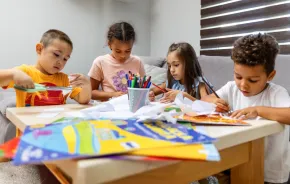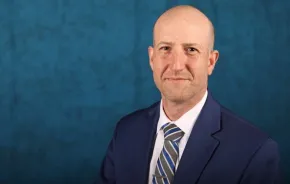It is widely believed that a child's primary sexuality educator should be his parents or caregivers. Yet most adults are uncomfortable at the prospect of talking with their children about sex. To make matters worse, good resources on the topic can be hard to find.
But believe it or not, experts say, your own values and experiences -- combined with a willingness to be open and honest -- are most of what you'll need to teach your child what he should know.
Carole Miller, education director at Planned Parenthood of Western Washington, feels there are a few basic messages that all kids should hear: That you're a valuable person who deserves respect, that no one has a right to touch you without your consent, and that your body is great just the way it is. Beyond that, she says, the key messages depend on each family's values.
"If it's your value that you don't want your kids to have sex until they're married, this is your chance to talk about it," she says. "If you want to talk to your kids about being able to deal with the financial consequences first, or about being in a committed relationship," let them know, she adds.
For the many who are ill at ease with the topic, Miller suggests, "get materials, get books, take a class, talk to friends. Do everything you possibly can to be the most 'askable' parent possible. Because what we know is that parents and kids who have good dialog about sexuality, those kids make far better choices about their own sexual behavior when they become teenagers."
The Rev. Patricia Hoertdoerfer is one of the authors of "Our Whole Lives," a sexuality education course developed by the Unitarian Universalist Church and The United Church of Christ. She agrees about the importance of open, honest discussions that start earlier rather than later.
"Sometimes you don't stop to reflect," she says. "If you're in the backseat of a car and your hormones are raging, you need to have already thought through this: 'If I'm 14, do I really want to become a mother or father? And if I say no, how do I say no and have that be respected? Or what is a safe way to have sex if this is going to happen, and how can I talk about that with my partner?'"
Part of the skill of parenting around sexuality is looking for teachable moments, says Elizabeth Reis, a health educator for the Family Planning Program at Public Health-Seattle & King County. "The idea is not to wait until your child enters puberty and then have a big one-time conversation," she says. "You'll have big and little conversations throughout their childhood."
Reis offers this example of a teachable moment: Your child calls a pregnant woman fat. "It gives you a chance to talk about what it means to be pregnant," she says. "Or if you're reading a book together about bodies and she says, 'but I don't have one of those.' You could say, 'yes you do. Do you want to see?'" In addition, "a TV commercial that makes it sound like people's bodies are yucky if they don't use this product," gives you an opening to talk about body image, she adds.
Although it's important to remain on the lookout for these teachable moments, Reis also says it's a parent's responsibility to help his or her child anticipate change. Just as you prepared your child for her first day of school, she says, parents need to help kids anticipate puberty. "When girls get to be 7 or 8, and 8 or 9 for boys, it's important to start talking about puberty if the child hasn't," she says, "because they'll be carrying around fears if they don't talk about it, and you want them to feel prepared."
Reis says she is frequently asked by girls what they should do if they get their first period when a parent isn't around. "I want them to know that they've got the wherewithal to do what they need to do, right inside of them," she says. "If they're at a movie they'll probably discover it when they go to the bathroom, and it may mean balling up a bunch of tissue paper in their underwear until they could get to the drugstore -- or to the nurse's office if they're at school."
One thing boys need to know is that they will likely have a wet dream (according to Reis, approximately four out of five boys do). "If that happens, if they want to, they can tell (their parents), or if they'd rather, they can strip the bed and do the laundry themselves. So, for the sake of their own privacy I want them to know how to do the laundry," Reis says.
Which parent should be talking with the kids about sexuality? Both, Reis says. The more adults available to listen to the child -- and to share their own life experiences with him -- the better. "If a child has a parent of each gender explain what it's like to be pressured by your friends to have sex, they're going to hear things differently, and that's good."
Laura Fine-Morrison is a freelance writer and a mother.









